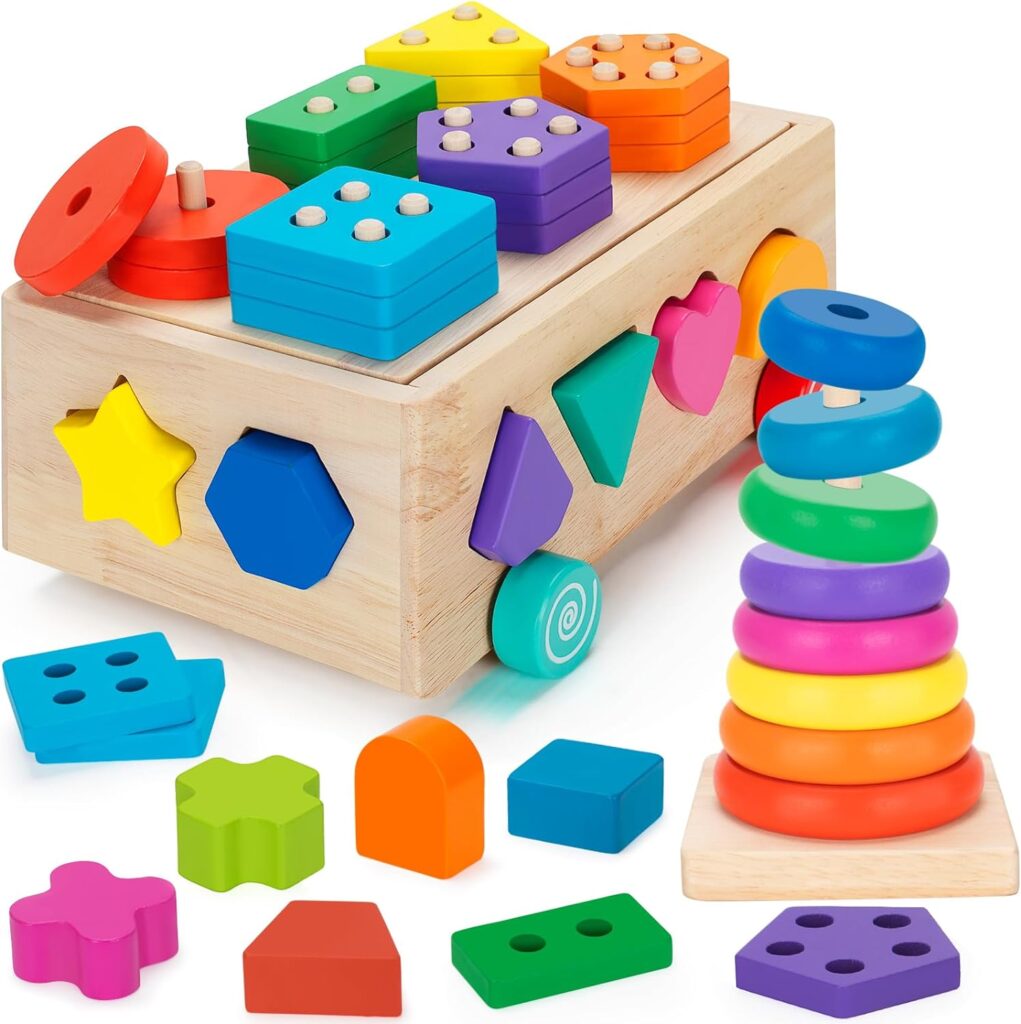When it comes to early education, Montessori principles have long been celebrated for their focus on independence, exploration, and hands-on learning. This extends even to the choice of toys for babies in a Montessori-inspired environment. Montessori baby toy essentials are carefully selected to foster natural curiosity, sensory development, and fine motor skills. Let’s delve into some key elements that make these toys essential in early childhood development. First and foremost, Montessori baby toys prioritize simplicity and functionality. They are designed to be visually appealing yet free from unnecessary distractions or overstimulation. This approach respects the child’s need for calm and ordered environment, where they can focus on exploring each toy in depth. For example, a wooden rattle with smooth edges and a gentle sound encourages grasping, shaking, and auditory stimulation without overwhelming the senses.

Another crucial aspect of Montessori baby toys is their emphasis on natural materials. Wood, cotton, and other organic materials are preferred over plastic or electronic toys. This choice not only aligns with Montessori’s focus on connecting children with the natural world but also offers tactile experiences that support sensory development. A set of wooden blocks, for instance, invites babies to feel different textures, practice stacking, and explore spatial relationships through play. Furthermore, Montessori baby toys often feature open-ended designs. Unlike toys with a specific function or limited play possibilities, these toys encourage creativity and problem-solving. A set of colorful scarves, for instance, can be used in countless ways—peek-a-boo games, sensory exploration, or even as makeshift props in imaginative play. This versatility sparks curiosity and allows babies to discover new ways of interacting with their environment. In addition to promoting hands-on exploration, Montessori baby toys also promote independence and autonomy. Simple puzzles, shape sorters, or nesting toys provide opportunities for babies to practice essential skills such as hand-eye coordination, spatial awareness, and persistence.
These toys are intentionally designed to be challenging yet achievable, empowering babies to learn through trial and error without constant adult intervention. Montessori baby toy essentials also prioritize real-life experiences. This means incorporating toys that mimic everyday objects or activities, such as child-sized utensils for pretend cooking or miniature cleaning tools for role-playing. These toys not only spark imagination but also encourage practical life skills and social interaction. Through pretend play, babies learn about their world, develop language skills, and gain a sense of competence and confidence. Ultimately, montessori wooden toys essentials are more than just playthings—they are tools for holistic development. By providing babies with a thoughtfully curated selection of toys that inspire curiosity, creativity, and independence, Montessori education sets a strong foundation for lifelong learning. These toys honor the child’s innate desire to explore, discover, and make sense of their environment, fostering a love for learning that lasts a lifetime.
